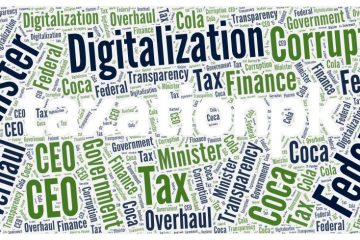Introduction
Taxes are a necessary part of any society. They provide the government with revenue that can be used to fund essential services such as education, healthcare, and infrastructure. In Pakistan, there are a variety of different taxes that are levied on individuals and businesses. This blog post will provide a comprehensive overview of the different types of taxes in Pakistan, as well as the rates and deadlines that apply to each one.
Types of Taxes in Pakistan
The following are the main types of taxes that are levied in Pakistan:
- Income tax: This is the most common type of tax in Pakistan. It is levied on the income of individuals and businesses. The income tax rate in Pakistan is progressive, which means that the higher your income, the higher your tax rate.
- Sales tax: This is a tax that is levied on the sale of goods and services. The sales tax rate in Pakistan is 17%.
- Customs duty: This is a tax that is levied on imported goods. The customs duty rate in Pakistan varies depending on the type of good being imported.
- Capital gains tax: This is a tax that is levied on the profits that are made from the sale of assets such as stocks, bonds, and property. The capital gains tax rate in Pakistan is 15%.
- Excise duty: This is a tax that is levied on the production or manufacture of goods. The excise duty rate in Pakistan varies depending on the type of good being produced or manufactured.
- Property tax: This is a tax that is levied on the ownership of property. The property tax rate in Pakistan varies depending on the value of the property.
- Education cess: This is a tax that is levied on the sale of goods and services. The education cess rate in Pakistan is 2%.
- Withholding Tax: Withholding tax is a tax deducted by businesses from the payments they make to individuals and other businesses. The rate of withholding tax varies depending on the type of payment being made.
- Health tax: This is a tax that is levied on the sale of goods and services. The health tax rate in Pakistan is 1%.
Rates and Deadlines
The rates and deadlines for different taxes in Pakistan vary depending on the type of tax. The following are some general guidelines:
- Income tax: The income tax rate in Pakistan is progressive, which means that the higher your income, the higher your tax rate. The income tax deadline in Pakistan is June 30th of each year.
- Sales tax: The sales tax rate in Pakistan is 17%. The sales tax deadline in Pakistan is the 15th of the following month.
- Customs duty: The customs duty rate in Pakistan varies depending on the type of good being imported. The customs duty deadline in Pakistan is the 15th of the following month.
- Capital gains tax: The capital gains tax rate in Pakistan is 15%. The capital gains tax deadline in Pakistan is the 15th of the following month.
- Excise duty: The excise duty rate in Pakistan varies depending on the type of good being produced or manufactured. The excise duty deadline in Pakistan is the 15th of the following month.
- Property tax: The property tax rate in Pakistan varies depending on the value of the property. The property tax deadline in Pakistan is the 15th of the following month.
- Education cess: The education cess rate in Pakistan is 2%. The education cess deadline in Pakistan is the 15th of the following month.
- Health tax: The health tax rate in Pakistan is 1%. The health tax deadline in Pakistan is the 15th of the following month.
Conclusion
This blog post has provided a comprehensive overview of the different types of taxes in Pakistan, as well as the rates and deadlines that apply to each one. It is important to note that these rates and deadlines may change from time to time, so it is always best to check with the Federal Board of Revenue (FBR) website for the most up-to-date information.







